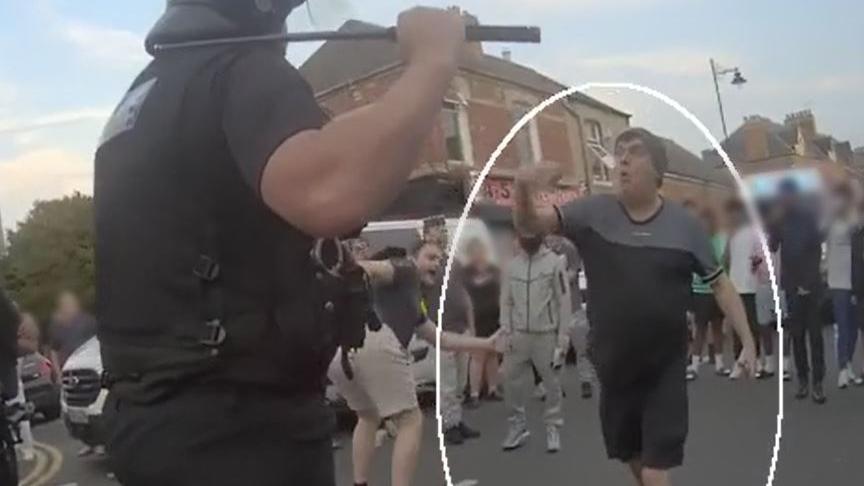Picking up the pieces after the riots
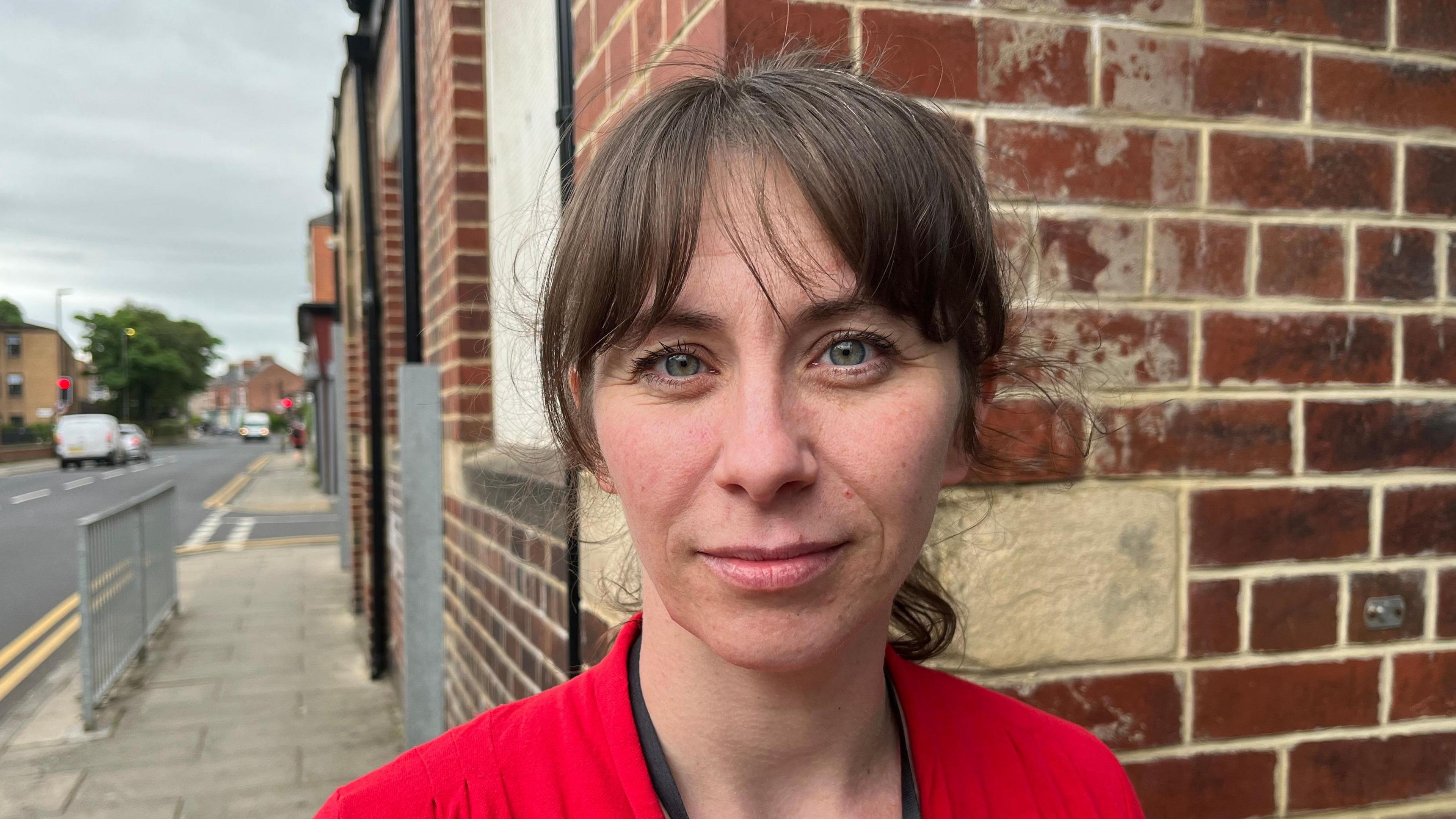
Nancy Pout said the majority of people in Hartlepool were united in horror against the riots
- Published
More than a week ago, violence erupted in communities across England with mobs attacking police, burning cars and buildings and looting businesses. While some involved have been jailed and many more await prosecution, the BBC spoke to a couple of those picking up the pieces in the aftermath.
It had started as a quiet Sunday afternoon in the South Yorkshire suburb of Manvers.
Then, as resident Caroline Bradley recalls, the "lynch mob" descended on the streets of well-kept, newly built homes in Wath upon Dearne, near Rotherham.
Their target was a Holiday Inn, which for several years has housed asylum seekers and refugees.
A week on, the damage left behind is clear to see.
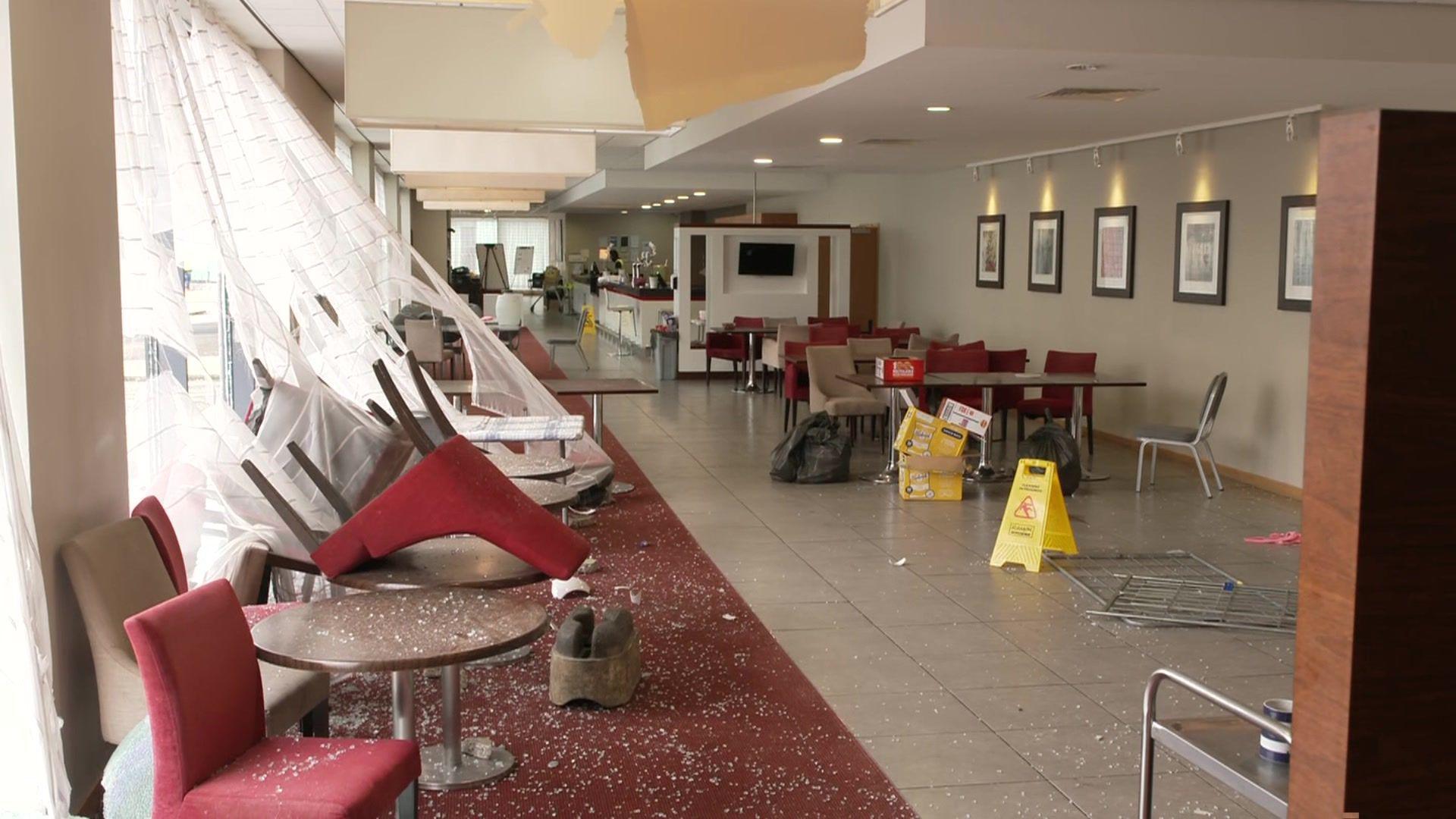
Rioters targeted the Holiday Inn in Manvers on 4 August
An electricity box at the back of the car park has been burnt to a crisp while cracked windows remain visible, with several of them boarded up.
The atmosphere is distinctly eerie, the quiet profound after the noise before.
"They were a very hate-filled mob just looking out for trouble," Ms Bradley, who has lived near the hotel with her husband Stuart and their teenage son for five years, says.
Ms Bradley says she and other local residents were initially against migrants being housed at the hotel without consultation.
However, she says "they have been here a couple of years and I don’t know of any trouble".
"I appreciate people have got opinions, but it was next-level hate," she says, adding: "It was difficult to pinpoint what the agendas were, other than just destruction and hate."
She says the majority of the rioters she saw did not live in the area, adding: "They don't speak for us as a community."
The very next day, people were out in force to start cleaning up the mess.
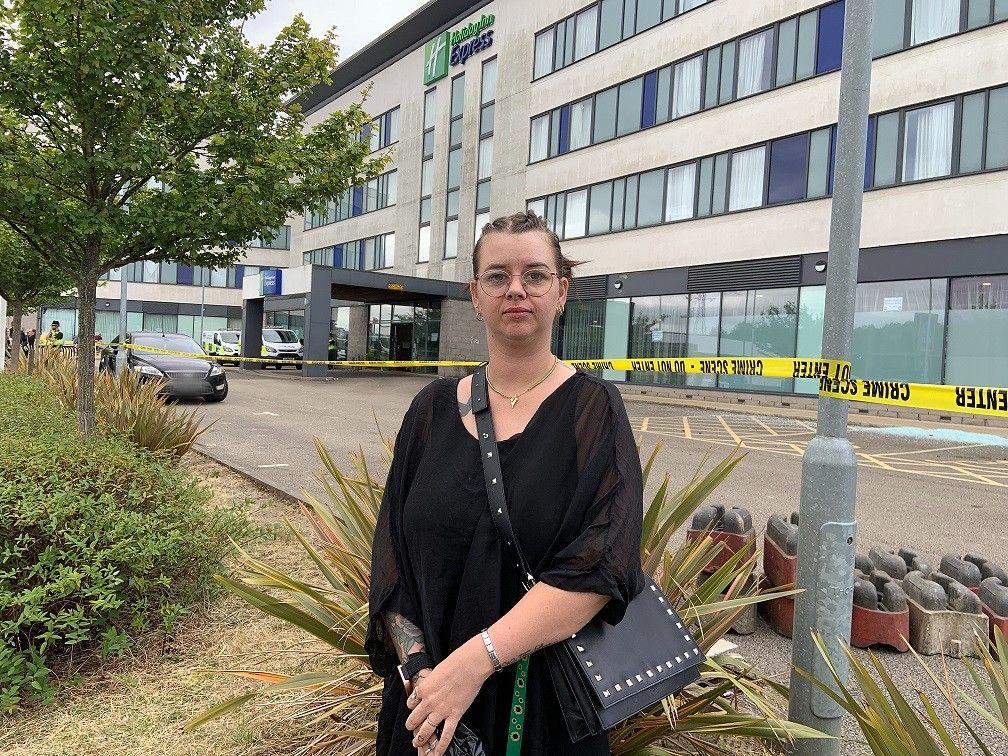
Jade Wade joined the clean-up operation in Manvers
Among them was Jade Wade, who had spent the previous day watching in horror as the chaos streamed on social media.
"I'm just really disheartened, shocked and angry," she says.
The violent protests, which struck towns and cities across the country, came in the aftermath of the deaths of three girls in Southport on 29 July, who were killed while attending a Taylor Swift-themed dance event.
The mobs "jumped on a bandwagon and saw a reason to get angry", Jade says, adding: "They said they were protecting our children, when there were poor children in [the hotel] as well.
"It just doesn't make any sense.
"A lot of them didn't know why they were here. They just saw it as a reason to come along and cause violence.
"All we can do is just continue to stand together and not back down to them."
It is a sentiment shared 96 miles (164km) north in the Teesside town of Hartlepool.
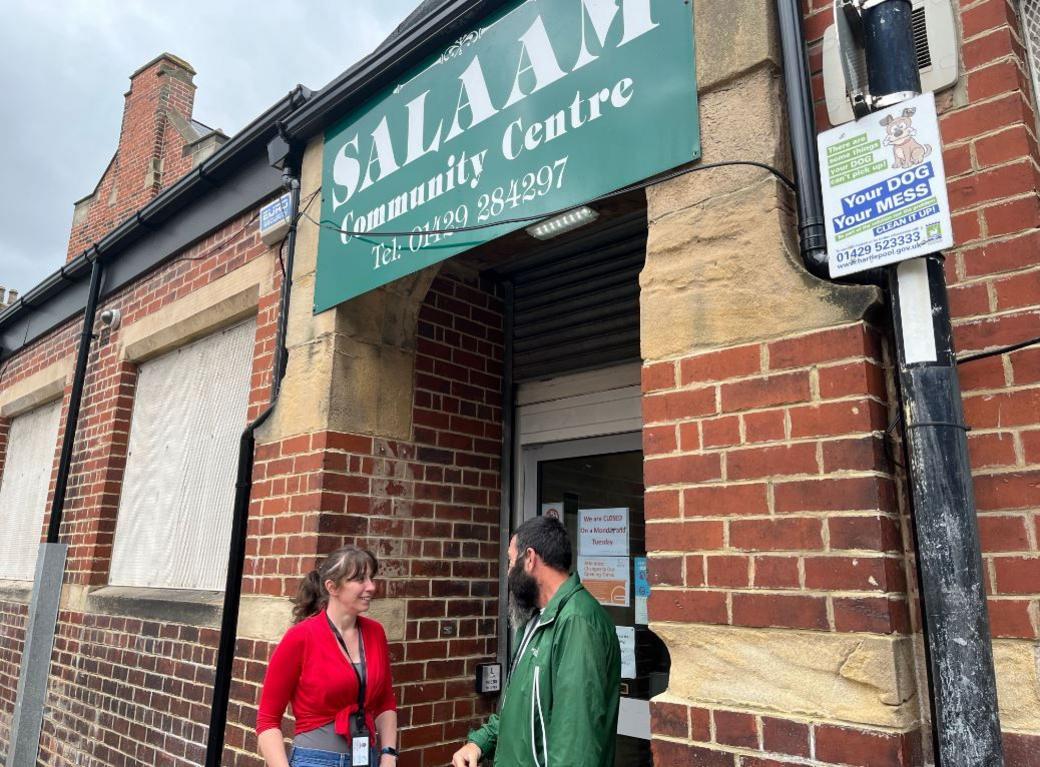
The Salaam Community Centre in Hartlepool was caught up in the violence
Five days before the Manvers riot, Nancy Pout could only watch helplessly as protesters ran riot across her town.
The Salaam Centre, which provides groups and support for those in the local community facing a number of issues and which Ms Pout is the manager of, was one of those caught in the crossfire of bricks and bottles.
"What I saw was senseless acts of violence and damage," she says, adding: "It was horrible."
But people like her were galvanised in the aftermath.
"It made us feel even more passionate about supporting our community and we stood together with our neighbours, with my colleagues and with the amazing men and women of Cleveland Police and said 'no, this is not our town'," Ms Pout adds.
A large group had gathered by 09:00 BST the morning after to start the clean up, with volunteers being helped on with teas and coffees from other members of the community.
"It was a shining light out of what had been a horrible night within the community, but it really shows that the majority in Hartlepool want what's best for this town, unlike the minority that were there on [31 July].
"The town pulled together, we had hundreds of people attend to try and make up for the horrible scenes of the previous night and that support has continued throughout the weeks.
"So our doors are open and we are business as usual."
Related topics
More about this story
- Published23 August 2024
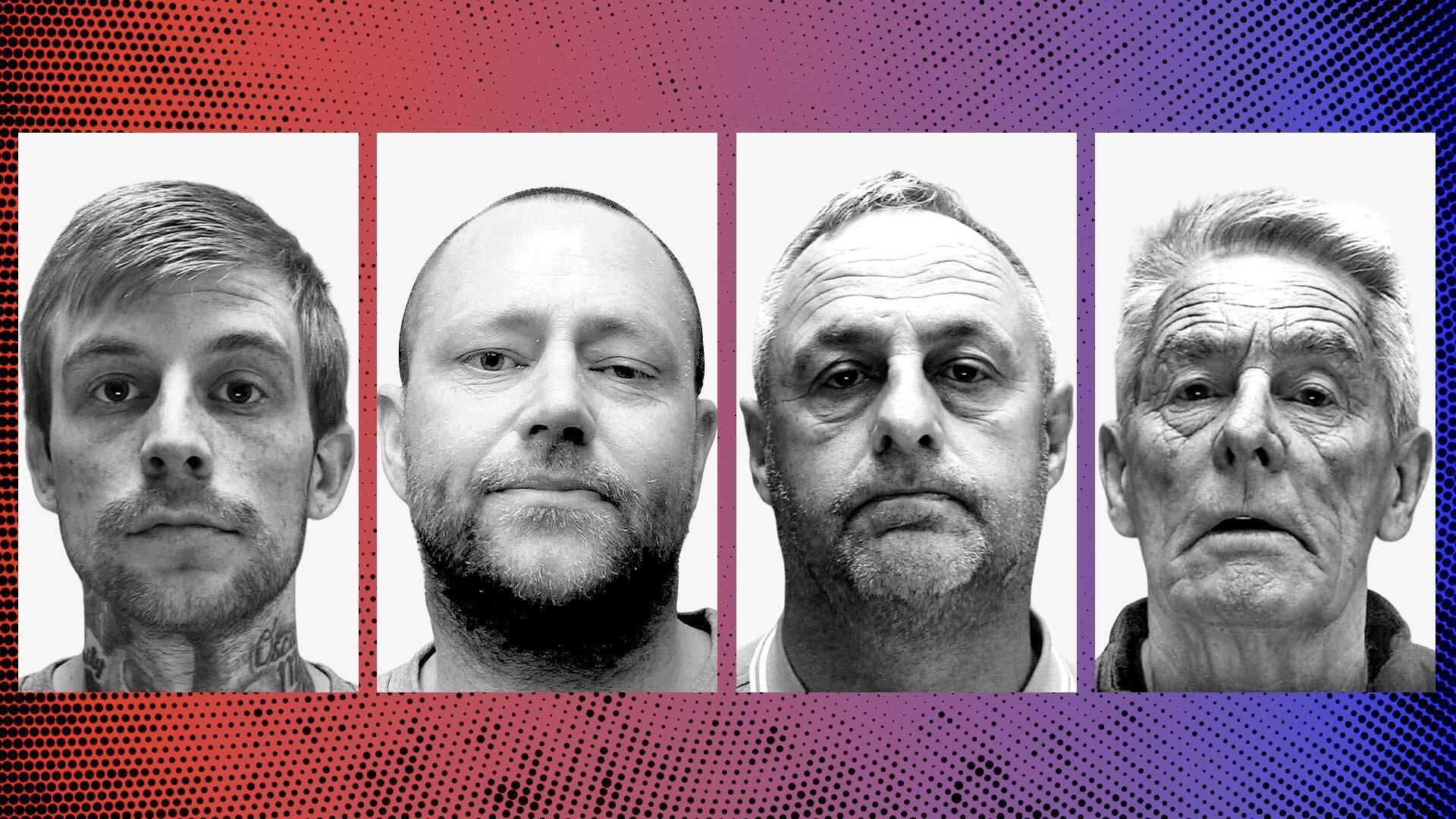
- Published12 August 2024

- Published8 August 2024
